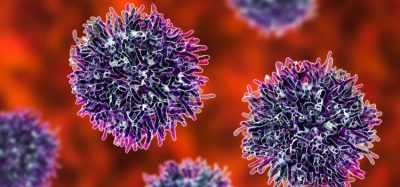Women in STEM with Juliet Williams
Posted: 23 July 2024 | Juliet Williams (Kymera Therapeutics) | No comments yet
As part of our series highlighting women in STEM, we spoke to Juliet Williams, Head of Research at Kymera. She discusses what inspired her early passion for science, the power of mentorship and what excites her most about the future of targeted protein degradation – and its potential to deliver results in previously undruggable conditions.


What inspired you to pursue a career in STEM and can you tell us about how your career journey unfolded?
An early introduction to STEM in the classroom sparked my passion for biology and I’m grateful for the exposure to different scientific concepts and contexts at a young age. I wanted to make a tangible impact on the world through biology and was drawn to the challenge of scientific discovery, which led me to pursue a career in the biotech/pharma industry.
I was always interested in examining the lifecycle and interactions of cells and how they orchestrated functions involved in people’s development, ageing, and health. It’s something that connects all of us, and I was fascinated by the immense power of this microscopic universe. I sharpened my focus in my early teen age years when I decided I wanted to harness my interest in human biology to make medicines for people. From then on, I was very deliberate in my educational and career choices to enable that vision.
I studied Natural Sciences at the University of Cambridge, where I was exposed to a range of disciplines from chemistry to physiology, specialising in my last year in biochemistry. I absorbed as much scientific acumen as possible and gained many hours of lab experience to accrue hands-on experience. I carried that appetite for knowledge, coupled with a driven work ethic, through my graduate and post-graduate studies at the University College London.
Biomarkers are redefining how precision therapies are discovered, validated and delivered.
This exclusive expert-led report reveals how leading teams are using biomarker science to drive faster insights, cleaner data and more targeted treatments – from discovery to diagnostics.
Inside the report:
- How leading organisations are reshaping strategy with biomarker-led approaches
- Better tools for real-time decision-making – turning complex data into faster insights
- Global standardisation and assay sensitivity – what it takes to scale across networks
Discover how biomarker science is addressing the biggest hurdles in drug discovery, translational research and precision medicine – access your free copy today
Shortly after finishing my studies, I landed my first job in industry working on cell biology research for several disease indications. This laid the groundwork for my career in drug discovery using novel modalities like small molecule inhibitors, antibodies, RNA interference (RNAi) and, currently, small molecule protein degraders – which are opportunities to change how we think about medicines.
Can you tell us more about your experience of forging a successful career as a woman in STEM and particularly about the importance of mentors?
I learned early on in my journey that I would need to be an advocate for myself and forge my own voice. At the time, research and leadership roles in biotech/pharma industry were predominately held by men and there were not as many opportunities for career development and mentorship from women leaders. We’ve made a lot of progress with empowering women in STEM and I hope to be a part of mentoring the next generation of female scientists developing transformative medicines.
To help overcome obstacles in a rapidly evolving landscape, I was always eager to engage with the STEM community, including finding wonderful mentors to guide and support my career development. Mentors are essential for growth, especially as they provided a trusted resource to help navigate new research frontiers and obstacles. They offered critical, constructive feedback and advised on technical and soft skills to propel my career journey. For example, one of my mentors taught me the power of ‘grit’ and never giving up. If you truly believe in something, keep talking about it even if the first answer is no and pursue it even if there are obstacles.
Pushing the boundaries of science always opens the door to new, impactful developments, although there are always challenges along the way. I had to exhibit tenacity, patience, and courage throughout my career to accomplish many things that hadn’t been done before. Expanding the scope of my scientific curiosity and scientific skill set was key to helping me address challenges by identifying new insights and perspectives to apply to my research and field. I would keep track of developments in the industry through research articles, conferences and my network.
Finally, it’s incredibly important to be a part of a cohesive, supportive team since innovation takes a community. As a leader in novel research, I feel very fortunate to work with brilliant scientists every day in pursuing these challenges and I know it’s our shared motivation and culture that enables us to achieve what was thought impossible.
Could you share an example of a specific project or research that you have worked on and the impact it has had in your field?
I’ve been involved in so many exciting projects that it’s difficult to single out just one. Focusing on my time as Head of Research at Kymera, I’ve been fortunate to break new ground in drug discovery and development by advancing the science of targeted protein degradation (TPD) and progressing an industry leading pipeline to solve critical health problems that traditional medicines cannot address.
TPD engages the body’s natural protein recycling system by selectively eliminating disease-causing proteins, ultimately addressing the root cause of disease. This elegant mechanism has the power of genetic knockdown, with the flexibility of small molecules, thus expanding the opportunity set of a plethora of proteins that have never been targeted by any other therapeutic modality. Understanding the vast potential of TPD to expand the universe of targets and be applied to almost any disease, I’ve been honoured to oversee building and leading highly productive cross-functional scientific teams in target identification, drug discovery and the translational stages of drug candidate progression across our pipeline.
Specifically, I am thrilled to see our MDM2 degrader progressing in the clinic without the toxicities that traditional inhibitors have elicited. This is a well-known, high-value oncology target where inhibitors have struggled in the clinic due to toxicities. Because of the unique pharmacology and biology of degraders, we can kill cancer cells and maintain a tox window.
I was also thrilled to participate in Kymera’s Immunology R&D Day, where we unveiled two new oral degrader programs that both have the potential to address multiple immune-mediated diseases, each with considerable potential. The newer programs target Signal transducer and activator of transcription 6 (STAT6) and Tyrosine Kinase 2 (TYK2). These are two essential signalling nodes in genetically and clinically validated pathways driving inflammation in autoimmune diseases that are undrugged or inadequately drugged with other technologies.
With these newer programs, I’ve had the honour of collaborating with my team to build a multi-faceted drug discovery engine. This engine delivers first-in-class investigational drugs in areas with high unmet need that are primed for clinical-stage development. It’s capable of identifying new drug candidates at an accelerated pace and advancing at least one new programme into clinical testing every year.
How has your research in STEM contributed to advancements or improvements in your field, and what potential future applications or implications do you foresee based on your work?
I’ve already had a number of ‘rocking chair’ moments in my career. By this I mean memorable times where I’ve helped make discoveries, including some that have led to new drugs coming to market. I’ve achieved many industry firsts that I look forward to sharing with younger scientists when I reflect on my career. I’ve been lucky to have the opportunity to pioneer several new therapeutic modalities that aim to drive meaningful improvements in patient care.
At the onset, utilisation of TPD across the field was primarily focused on oncology and with our key research learnings and capabilities. There is significant opportunity to apply TPD beyond oncology to other therapeutic areas. Kymera has advanced the first degrader into the clinic for immunological diseases. Now we’re focusing on delivering oral small molecule degraders to provide a new generation of convenient, highly effective therapies for patients with immunology conditions.
Additionally, the field continues to drive science forward to de-risk the platform by utilising innovative computational and research tools to develop new ways to harness the body’s recycling system. Kymera and others are also identifying novel molecular glues that can access validated targets that don’t have discrete binders to those proteins, further expanding the universe of druggable targets in a disease agnostic manner.
As a woman in STEM, what unique perspectives or strengths do you believe you bring to your work?
Diverse perspectives and a range of skill sets and experiences are essential in a growing industry and bring valuable insights to our work. I believe having a rigorous scientific approach has helped me throughout my career and enabled me as a leader to make decisions and embrace challenges. Additionally, I’ve always taken a people-first approach to leadership, fostering a culture of trust and creativity, to enable teams to execute and succeed.
What advice would you give to young women who are considering a career in STEM but may be hesitant due to societal stereotypes or perceived challenges?
Follow your passion and be yourself as you progress in your career. Remember everyone brings unique skills, perspectives and ideas to each organisation – and this helps drive innovation at its core. Stay curious and learn from those around you, both inside and outside of work. Find mentors and allies that provide guidance and support as you navigate your career journey and work hard each day to accomplish your goals.
How do you see the representation of women in STEM changing over the years, and what further progress do you believe is needed?
There has been a gradual and encouraging increase of women in STEM fields and roles, including representation in leadership positions. Overall, the industry has made progress in proactively engaging and empowering women’s voices and providing platforms and opportunities to showcase their work – like this series! I believe it’s important to cultivate opportunities for STEM exposure at a young age, including providing programming, resources and career advice for the next generation of scientists.
In your opinion, what can organisations and institutions do to create a more inclusive and supportive environment for women pursuing STEM careers?
There is still work to be done in the industry and it’s important for organisations to work towards building diverse teams and representation across all levels, as well as amplifying a range of different voices within the organisation. I believe it’s important to cultivate a culture that empowers and inspires career development for women in STEM, especially by supporting mentorship opportunities and investing in people’s growth.
Looking ahead, what exciting developments or advancements do you foresee in your field of STEM, and how do you envision your own research contributing to those future innovations?
There continues to be energy and opportunity in the field of TPD. We’re seeing several new companies launching each year, new drug candidates rapidly advancing to the clinic and novel platform approaches creating promising new opportunities to impact the lives of patients with serious diseases.
Looking ahead, I’m excited for our team to continue to push the science of TPD forward, to take degraders into new disease areas that need better treatments, such as complex immuno-inflammatory diseases. All is possible with this technology to target previously undruggable, highly credentialed targets. Additionally, our team will build off our work and pioneer adjacent technologies like novel molecular glues, which offer the opportunity to further expand what we can drug and the possibility of medicine. While we’ve had many great accomplishments, the best is still ahead as we work to transform treatment paradigms.
About the author


Juliet is currently Head of Research at Kymera, where she is responsible for building the portfolio and delivering developmental candidates and INDs for the clinic. She has more than 20 years of drug discovery experience and has contributed to multiple INDs and medicines during her time at Novartis, Sanofi, Millennium, and Curis. Prior to Kymera, Juliet was the Head of Oncology Biology and Small Molecule Drug Discovery at Novartis Institutes for Biomedical Research in Cambridge and served in other leadership positions at both Novartis and Sanofi. Juliet holds a degree in Natural Sciences (Biochemistry) from the University of Cambridge and a PhD in Developmental Biology from University College London. Juliet additionally completed a Wellcome Postdoctoral Fellowship at University College London in Developmental Biology.
Related topics
Drug Discovery, Drug Targets, Research & Development
Related organisations
Kymera Therapeutics
Related people
Juliet Williams (Kymera Therapeutics)








